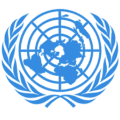Evaluation Expert and Team Lead
JOB DETAIL
Result of Service
The independent evaluation will help programme managers and stakeholders identify and understand overall progress made against the approved programme, decisions and progress made to expand the programme, the timeline of accomplishment, and qualitative lessons learned. The evaluation will also provide a viewpoint from the perspective of stakeholders and donors who assess programmes with an external review of objectives, relevance, management efficacy and implementation, and whether the programme has achieved its overall goals thus far.
Work Location
Home based
Expected duration
4 months
Duties and Responsibilities
Background and rationale
In accordance with its mandate, the UNOCT-UNCCT’s efforts through the BSM programme are focused on countering terrorism and preventing and detecting the movement of FTFs. Through the inception phase of the programme implementation, the Centre has gained a significant understanding of the gaps and technical assistance requirements of Member States. The UNCCT has identified that the Sahel, Western Africa, and the Horn of Africa are regions that face some of the biggest challenges. Expert practitioners from these regions, working with experts from across the globe, have identified challenges in the area of BSM in general, starting with a lack of or inadequate border management strategies and implementation plans, that in turn, has an impact and weakens the cross-border cooperation, border surveillance, gaps and needs analysis, and risk analysis and management in particular. The capacities of Member States within these regions to address such challenges vary drastically. These variations often cause difficulties in ensuring effective cooperation as States with more advanced systems and equipment cannot easily exchange information with those States that do not have such equipment. This is the case, for example, between some North African countries and sub-Saharan countries, which affects overall BSM in the wider Sahel region. Furthermore, there is recognition among experts that effective BSM plays a crucial role in combating transnational threats and cross-border criminal activities. While this situation analysis is provided from a global perspective, the issue of porous borders is particularly exploited by returning FTFs in the Sahel and Horn of Africa, East and Southeast Europe, Central Asia and Afghanistan. As such, this Programme has an emphasis on strengthening the BSM strategies and structures in these regions to avert transnational threats in general and counter terrorism and FTFs in particular on a global scale.
The Border Security and Management (BSM) Programme is reinforcing the capacities of Member States to prevent terrorists from moving across borders and to stem the flow of foreign terrorist fighters (FTFs) in line with the UN Global Counter-Terrorism Strategy and relevant Security Council resolutions. It provides (1) tailored technical assistance to policy-makers on border security and management to design comprehensive border security strategies and action plans based on international “Good Practices” and close inter-agency cooperation; (2) deliver capacity-building activities to law enforcement agencies on border security, information sharing, and use of biometrics at borders.
DUTIES AND RESPONSIBILITIES
Under the guidance and supervision of the Evaluation Manager, the key responsibilities of the Evaluation Expert include:
• Leading and guiding the independent evaluation team, ensuring high-quality deliverables that fully meet UNOCT and UNEG evaluation norms and standards;
• Participating in the kick-off meeting;
• Developing the evaluation design with detailed methods, tools and techniques that are human rights-based, gender-inclusive and gender-sensitive, generating information from and about men, women, and other marginalized groups, as well as key gender, disability, inclusion and human rights issues;
• Conducting a robust data collection phase based on the approach, tools and methods stated in the approved Inception Report;
• Conducting robust data analysis, including by using relevant tools and software (e.g., NVivo), and ensure that the Evaluation Manager has access to all raw data at any given point in time;
• Ensuring adherence to UNOCT evaluation guidelines and templates and the full evaluation terms of Reference (ToR);
• Ensuring all deliverables identified in these terms of reference are submitted in a timely and satisfactory manner, and in line with the quality criteria checklist;
• Effectively coordinating and interacting, throughout the entire evaluation process, with the Substantive Expert(s)/evaluation team. Request drafted inputs (and revisions of such) from the Substantive Expert(s)/evaluation team for all deliverables.
Qualifications/special skills
Advanced university degree (Master’s degree or equivalent) in political or social sciences, evaluation, project management or a related field is required. A first-level university degree (Bachelor’s degree or equivalent) in a similar field in combination with two additional years of qualifying experience may be accepted in lieu of the advanced university degree.
A minimum of 10 (ten) years of professional technical experience in the field of evaluation or related field, including a track record of conducting various types of evaluation at the international level, preferably with experience in conducting evaluations for the United Nations.
Knowledge and experience of the UN System and in particular, of UNOCT is desirable.
Knowledge of quantitative and qualitative methods is required.
Experience in presenting and communicating complex evaluation or research results in a structured manner (in reports, briefs, presentations, etc.) is required.
Experience in producing well-designed reports that meet UNEG evaluation standards.
Languages
For this post, fluency in oral and written English is required. Knowledge of another official United Nations language is an advantage.
No Fee
THE UNITED NATIONS DOES NOT CHARGE A FEE AT ANY STAGE OF THE RECRUITMENT PROCESS (APPLICATION, INTERVIEW MEETING, PROCESSING, OR TRAINING). THE UNITED NATIONS DOES NOT CONCERN ITSELF WITH INFORMATION ON APPLICANTS’ BANK ACCOUNTS.


